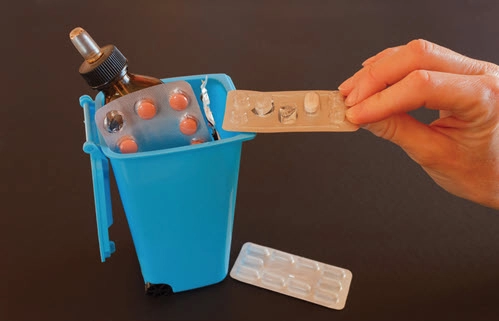Are You Following The GAO's Best Practices For Drug Disposal In The Home?
The cost of in-home disposal products can be prohibitive. Hospices take many approaches to the longstanding problem of disposing of patients’ drugs, a new federal report notes. For example: The Government Accountability Office addresses disposal of controlled substances in patients’ homes in a recently released report, and compiles a list of best practices for preventing drug diversion in the home. Background: Many hospices routinely disposed of patients’ drugs in the home until a 2014 federal law said they could only do so if state laws allowed, notes the GAO report. Then the Substance Use-Disorder Prevention that Promotes Opioid Recovery and Treatment (SUPPORT) for Patients and Communities Act of 2018 again allowed employees of qualified hospice programs to dispose of unused controlled substances in patients’ homes. In states that hadn’t passed legislation on the issue, many hospices resumed disposing of drugs again — but not all, the report notes. The cost of disposing drugs, in both materials and staff time, is one major reason, hospices told investigators. Other reasons include conflicting state guidance and lack of family/caregiver cooperation. In addition to disposal, hospices told the GAO they use these practices to help prevent drug diversion: Patient education. Providers train patients and caregivers on controlled substances starting at admission, including written agreements requiring signatures. Prescription drug counts. Nurses conduct prescription drug counts at every visit and require the family’s acknowledgement or witnessing. Lockboxes. In homes with high diversion risk or children, hospices use lockboxes that patients and caregivers can access. In addition to the restriction, lockboxes can be accountability tools so those with access cannot accuse others of stealing. Pharmacy cooperation. A pharmacy can mail a prescribed controlled substance in smaller quantities and with greater frequency — even daily in some cases. Witnessed disposal or assisted disposal. State laws may specify the witness required. In-home disposal products. Such products are frequently preferred, but may be costly. One hospice reported receiving its through a grant. Documentation. Recording all activities, including giving family members/caregivers a form to sign if they refuse disposal, is key. Tip: Hospices should make sure they have written policies and procedures in place encompassing their handling of controlled substances, the National Association for Home Care & Hospice recommends. Note: The report is at https://www.gao.gov/products/GAO-20-378.

